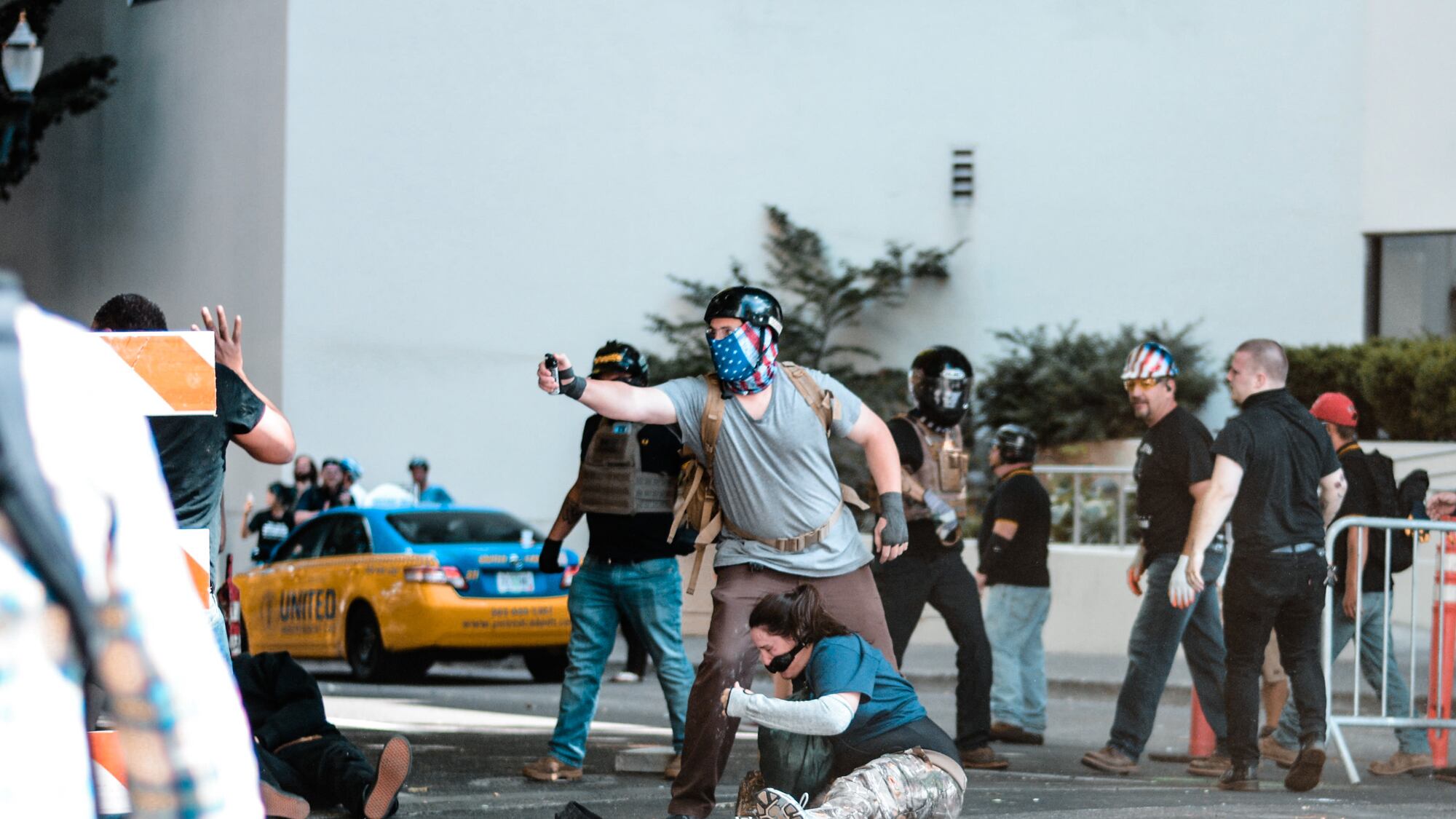Advocates with three civil-rights groups—the Western States Center, CAIR-Oregon and the Oregon Justice Resource Center—sent their own plan for stopping violent street clashes to Portland Mayor Ted Wheeler's office last month.
They presented their alternative plan, WW has learned, with the hope that Wheeler would abandon his attempt to expand police powers to control violent protests.
The groups say they met with the mayor and his staff on Oct. 18, just after Wheeler proposed his ordinance to restrict when and where violent protesters can gather. They asked him to consider a broader approach to counter the white nationalism and far-right extremism that has sparked violent clashes on Portland's streets. They offered to fund the efforts with private dollars.
He did not accept that suggestion, they say. And tonight, those three groups are going public with their rejected recommendations, on the eve of a pivotal City Council vote on the mayor's plan.
"The mayor's office is very committed to the ordinance," says Amy Herzfeld-Copple, deputy director of programs and strategic initiatives for the Western States Center. "We felt like the ordinance has always been the wrong solution, although we certainly recognize the mayor is acknowledging a crisis and asking for support."
Wheeler's office could not immediately be reached for comment tonight.
For nearly two years, Portland has regularly seen political rallies that devolve into street brawls. Police have struggled to keep right-wing protesters and their leftist opponents from fistfights, spraying each other with bear spray, and using flag poles and retractable batons as weapons.
City Council will vote on Wheeler's ordinance tomorrow, Nov. 14. The mayor's proposal has the backing of Police Chief Danielle Outlaw and her command staff, who say it will give them more tools to control violent extremists. It's unclear whether the ordinance will pass tomorrow; the City Council is divided, and Commissioner Nick Fish says he's still deciding what to do.
Last week, commissioners heard criticism from civil rights advocates who believe it is unconstitutional and will lead to people's rights being violated.
OJRC executive director Bobbin Singh says the mayor missed an opportunity to collaborate with civil-rights leaders.
"We came to the mayor and we said to him 'Our objective is to make the city look strong,'" says Bobbin Singh, OJRC executive director. "We want to lift up the mayor and make him look strong on this issue. We see that the city could use a win. He could use a win. And we wanted that."
Singh calls tomorrow's ordinance vote a "lose-lose" scenario.
"If it passes, it has divided the civil rights community and the city," he says. "If it loses, it just reaffirms what the alt-right has said about [Wheeler], that he is a weak mayor and this is a weak city."
The advocates' proposal suggests a three-pronged approach using education, law enforcement training and creative litigation strategies to put a stop to nearly two years of violence at rallies held by the right-wing group Patriot Prayer, which seeks a violent response from antifascists in Portland's streets.
The Western States Center suggested hosting a symposium for city officials and employees to teach them about the aims and tactics of extremist groups like the far-right men's fraternity called the Proud Boys. It suggested a similar event for local journalists.
CAIR-Oregon said it could connect Portland police with experts on law enforcement and monitoring white supremacist groups—including former FBI agent and current Brennan Center for Liberty fellow Mike German and Dr. Jamille Harrell-Sims, who spent 16 years in local law enforcement and now gives implicit bias and trauma-informed training to police.
"We think there's a huge amount of ignorance on the city, county and state level in terms of understanding how these groups operate and what their goals are," says CAIR-Oregon spokesman Zakir Khan.
In the third prong of the proposal, the Oregon Justice Resource Center offered to start a task force to explore possible ways to limit right-wing violence using existing laws against paramilitary operations.
"The rise of the alt-right and the activities of related paramilitary groups is a direct attack on our values, democratic institutions, and community," the proposal concludes. "This phenomenon is complex and nuanced. The OJRC, Western States Center, and CAIR-Oregon are committed to working with the City of Portland in advancing strategies that demonstrate an appreciation of these complexities and the magnitude of the threat."
The groups say the approach they are suggesting would equip local officials with more information and knowledge about hate groups, which would empower them to use existing laws to combat political violence without risking people's First Amendment rights.
"We still hope we can do that," Singh says. "We don't want this proposal to be ditched."
Correction: This story misidentified Herzfeld-Copple's title and has been corrected.
